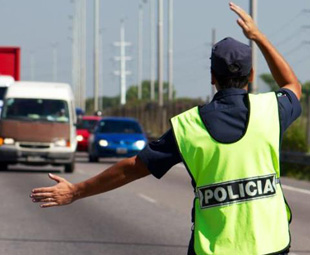Road safety is a global concern

The World Health Organisation (WHO) is taking action against the high number of road fatalities that take place around the world every year. In 2011, the organisation started working on the second global road safety status report. The Decade of Action for Road Safety 2011-2020, has now been released to reduce the number of lives lost on the roads worldwide.
The report has been launched in over 100 countries to identify the gaps in road safety, describe the road safety situation in all member states and assess the changes that have been made since the publication of the first report.
Dr. Ettienne Krug, director of the department of violence and injury protection sat WHO, comments: “For the first time, we have a real chance of stopping, and even reversing, the rising number of global road deaths.”
WHO works with partners (governmental and non-governmental) around the world, to inform on ways to improve road, vehicle and pedestrian safety, as well as management and enforcement of road safety and legislation. The organisation also aims to reduce drunk driving and speeding.
Krug says: “The biggest tragedy of global road fatalities is that we already know how to prevent them. In Australia, France, Sweden and the United Kingdom, for example, the number of road traffic deaths has declined by more than 50 percent in the past four decades. We must use the Decade of Action for Road Safety to make similar progress across the rest of the world.”
The goal of the report is to prevent five million traffic deaths globally by 2020. Since the first plan was released, many countries have taken measures towards improving road safety, either by developing national plans, introducing new laws or by increasing enforcement of existing legislation.
“Legislation must be accompanied by strict enforcement, backed by mass-media and public awareness campaigns,” says Krug. “If all countries implement and effectively enforce the global plan, five million lives could be saved over a 10 year period.”
She adds that political will is also central to achieving the ambitious target. In countries where considerable progress has been made, it was often spurred by a decision taken at the highest level of government.
“The next decade offers an opportunity to honour those who have lost their lives on the world’s roads by acting to spare the lives of others,” says Krug.
Published by
Focus on Transport
focusmagsa




